Marine Science Expeditions vs. Classroom Learning: Why Students Need Hands-On Ocean Research
- Caleb Mullenix
- Oct 16, 2025
- 5 min read

Ensuring students receive comprehensive marine science education requires moving beyond traditional classroom boundaries into real-world ocean environments. While textbook knowledge provides essential foundations, hands-on ocean research through educational expeditions creates transformative learning experiences that classroom instruction alone cannot deliver. The difference between reading about marine ecosystems and conducting actual research within them represents the gap between surface-level understanding and deep, lasting scientific literacy.
The Critical Limitations of Classroom-Only Marine Science Education
Traditional classroom approaches to marine science education face fundamental constraints that limit student comprehension and engagement. Consider these significant limitations:
Absence of Real-World Context
Students learn about ocean processes through static diagrams rather than observing dynamic marine systems
Laboratory experiments simulate conditions but cannot replicate the complexity of natural marine environments
Theoretical concepts remain abstract without direct observation and interaction
Student understanding remains superficial without exposure to actual research methodologies
Limited Sensory Engagement Classroom instruction typically engages only visual and auditory learning channels, leaving kinesthetic learners at a significant disadvantage. Marine science expeditions activate all senses, creating multiple pathways for knowledge retention and comprehension.
Lack of Authentic Problem-Solving Opportunities Textbook problems present pre-determined scenarios with known solutions. Real marine environments present unpredictable challenges that require critical thinking, adaptability, and collaborative problem-solving skills essential for scientific careers.
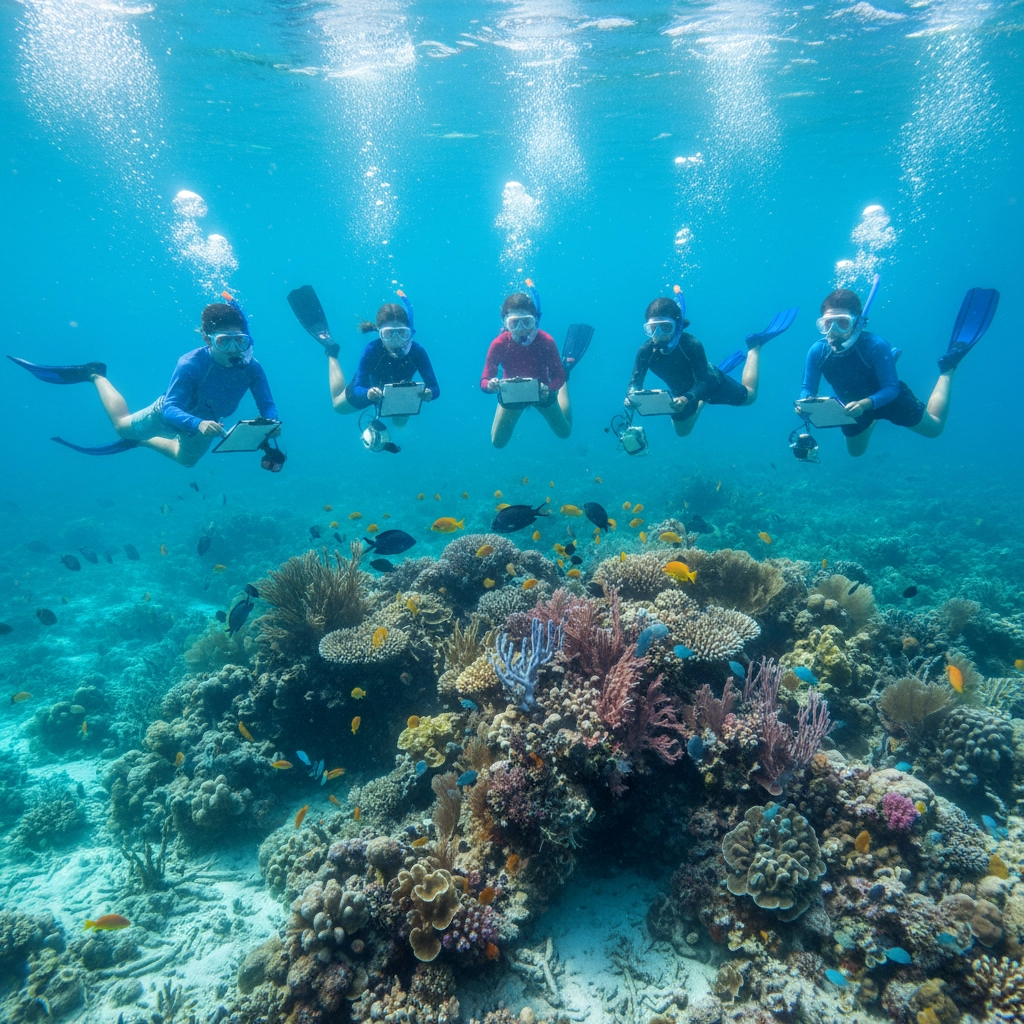
The Transformative Power of Hands-On Ocean Research
Marine science expeditions provide irreplaceable educational benefits that fundamentally enhance student learning outcomes. Research consistently demonstrates that experiential learning in natural environments produces superior retention rates, deeper comprehension, and stronger motivation for continued study.
Enhanced Cognitive Development Begin by understanding that hands-on research requires students to:
Formulate hypotheses based on direct observations
Collect and analyze real data from marine environments
Draw conclusions from authentic research experiences
Apply scientific methodology to genuine research questions
Development of Professional Skills Students participating in marine expeditions develop crucial competencies including:
Equipment operation and maintenance procedures
Data collection and recording protocols
Team collaboration under challenging conditions
Scientific communication and documentation skills
Emotional Connection and Environmental Stewardship Direct exposure to marine ecosystems creates emotional connections that textbook learning cannot establish. Students who experience marine environments firsthand develop stronger commitments to ocean conservation and environmental protection.
The Florida Keys: An Unparalleled Marine Science Laboratory
The Florida Keys ecosystem provides exceptional opportunities for comprehensive marine science education. This unique environment offers students access to diverse marine habitats, ongoing conservation efforts, and world-class research facilities within a manageable geographic area.
Biodiversity and Ecosystem Complexity The Florida Keys marine sanctuary encompasses:
The only living coral reef in the continental United States
Diverse seagrass beds supporting complex food webs
Mangrove ecosystems demonstrating coastal protection principles
Deep-water environments accessible for advanced research
Accessible Research Opportunities Plan expeditions to include multiple research sites within reasonable travel distances. The Keys' compact geography allows students to experience varied marine environments while maintaining efficient logistics and supervision protocols.
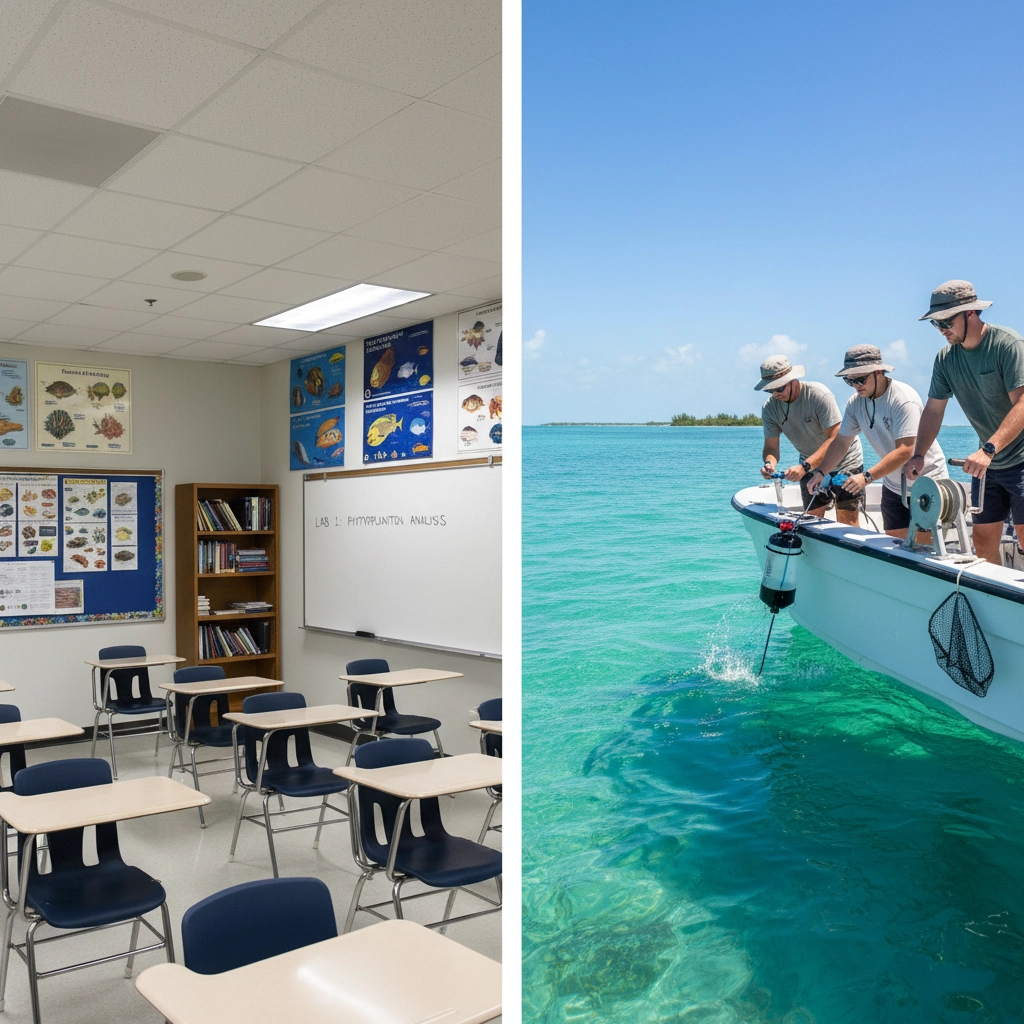
Essential Expedition Components: Wild Bird Sanctuary and Sea Turtle Hospital
Ensure your marine science expedition includes these critical educational components that demonstrate conservation principles in action.
Volunteering at the Wild Bird Sanctuary
Emphasize the importance of including volunteer work at local bird sanctuaries as an integral component of marine science education. These experiences provide students with:
Direct Conservation Impact
Hands-on experience with wildlife rehabilitation procedures
Understanding of human impacts on marine bird populations
Practical application of conservation biology principles
Development of compassion and responsibility for wildlife welfare
Scientific Skill Development Students participating in sanctuary volunteer work develop:
Animal handling and care protocols
Data collection regarding rehabilitation progress
Understanding of species behavior and physiology
Experience with conservation research methodologies
Implementation Guidelines Coordinate sanctuary visits well in advance, ensuring:
Proper safety training for all participants
Clear supervision protocols for student volunteers
Age-appropriate tasks and responsibilities
Integration with broader expedition learning objectives
Visiting the Sea Turtle Hospital in Marathon
Schedule visits to the Sea Turtle Hospital in Marathon as a cornerstone experience of any Florida Keys marine science expedition. This facility provides unmatched educational opportunities that demonstrate marine conservation in practice.
Educational Benefits The Sea Turtle Hospital offers students:
Direct observation of marine animal veterinary care
Understanding of threats facing sea turtle populations
Exposure to marine animal research protocols
Insight into conservation career opportunities
Learning Outcomes Ensure students understand:
Sea turtle life cycles and habitat requirements
Human impacts on marine turtle populations
Rehabilitation and release procedures
Long-term conservation strategies and their effectiveness
Preparation Requirements Advise students to research sea turtle species and conservation challenges before visiting. Provide background materials covering:
Regional sea turtle species identification
Common injuries and rehabilitation procedures
Conservation success stories and ongoing challenges
Career pathways in marine animal conservation
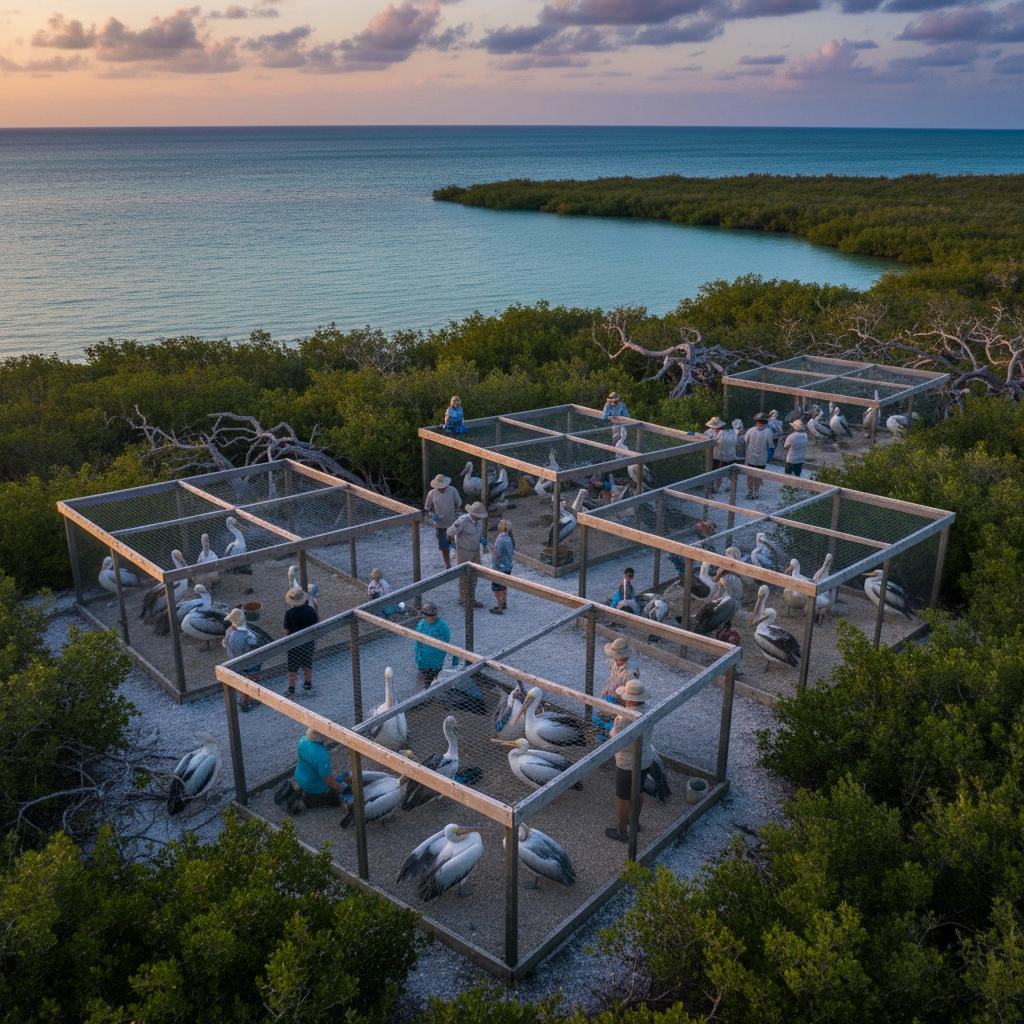
Maximizing Educational Outcomes Through Proper Preparation
Create comprehensive preparation protocols to ensure expedition success and maximize learning opportunities for all participants.
Pre-Expedition Academic Preparation
Begin expedition preparation with thorough academic foundations:
During-Expedition Learning Structure
Organize daily activities to maximize educational impact while maintaining safety standards:
Morning Briefings
Review daily objectives and safety protocols
Discuss weather conditions and environmental factors
Assign specific research roles and responsibilities
Address questions and concerns from previous activities
Active Research Periods
Conduct hands-on data collection activities
Practice species identification and habitat assessment
Document observations using proper scientific methods
Collaborate on problem-solving challenges
Evening Reflection and Analysis
Process collected data and observations
Discuss findings and draw preliminary conclusions
Connect experiences to broader scientific concepts
Prepare for subsequent research activities
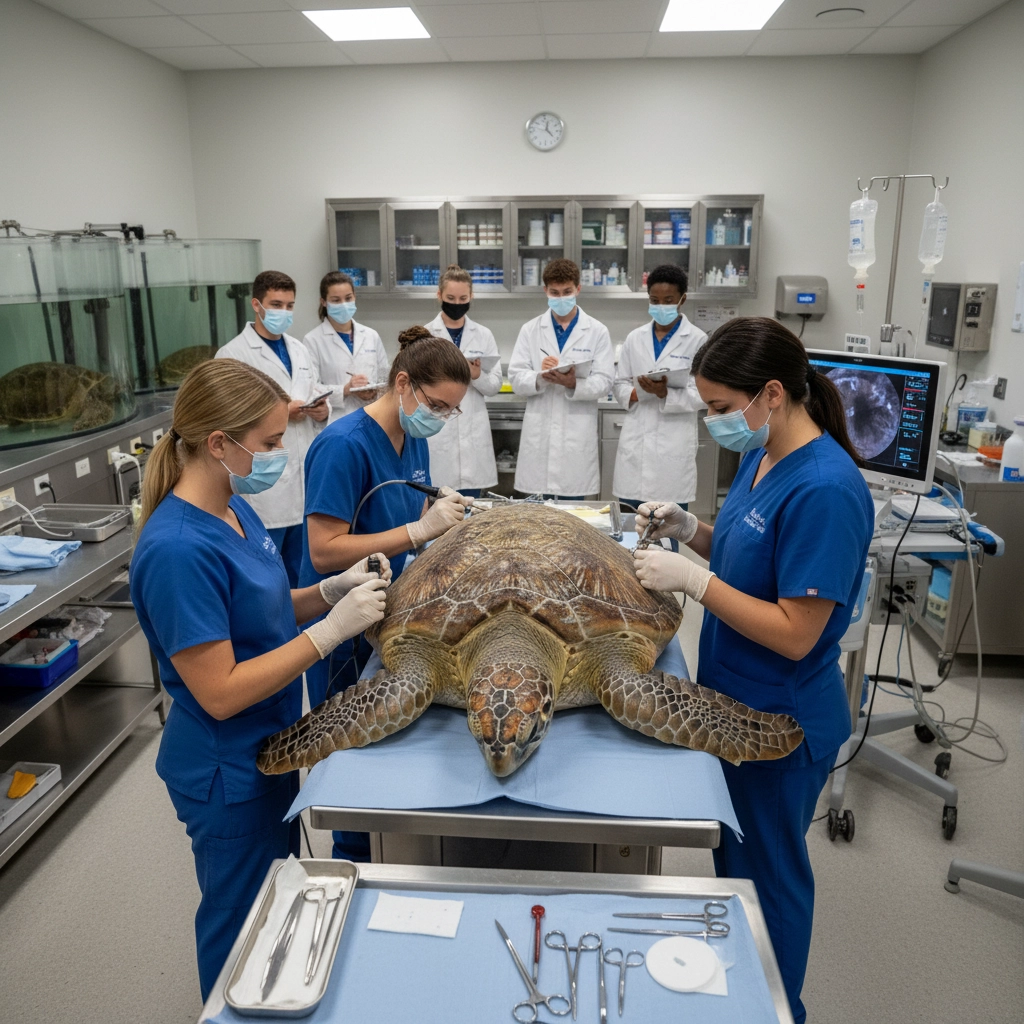
Safety Considerations and Risk Management
Emphasize the paramount importance of comprehensive safety planning for marine science expeditions. Prepare detailed protocols addressing all potential risks and emergency scenarios.
Environmental Risk Assessment
Conduct thorough evaluations of:
Weather patterns and seasonal considerations
Marine hazards including currents, tides, and wildlife
Equipment requirements for safe operation
Communication protocols for emergency situations
Student Supervision Requirements
Maintain appropriate supervision ratios and ensure:
Clear communication channels at all times
Regular headcounts and location verification
Immediate response protocols for any incidents
Backup supervision plans for all activities
Medical Preparedness
Establish comprehensive medical protocols including:
Pre-expedition health screening and documentation
Emergency medical supplies and equipment
Communication with local medical facilities
Evacuation procedures for serious incidents
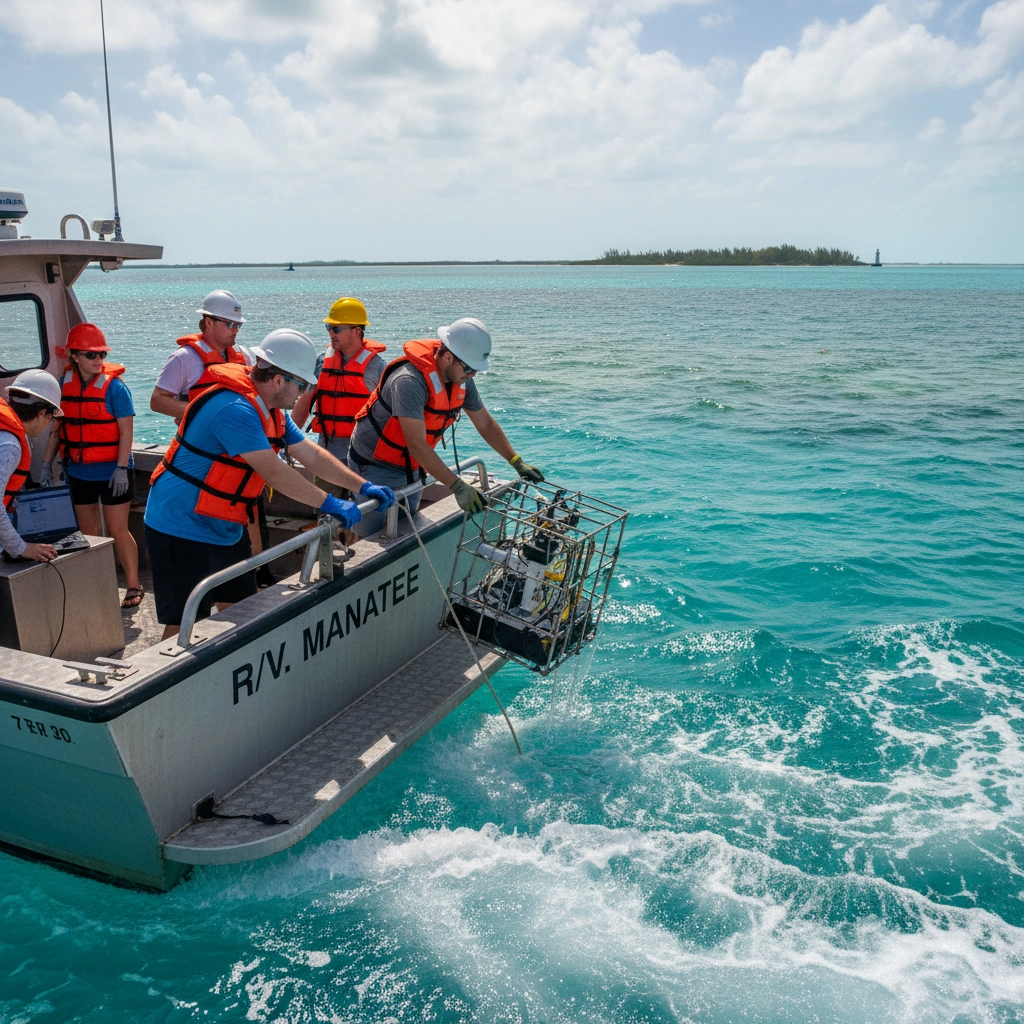
Long-Term Educational Impact and Career Development
Marine science expeditions provide students with experiences that influence academic and career trajectories long after program completion. Document and evaluate these lasting impacts to demonstrate program effectiveness.
Academic Performance Improvements Students participating in marine expeditions typically demonstrate:
Improved performance in science coursework
Increased engagement with environmental topics
Enhanced critical thinking and analytical skills
Greater confidence in scientific methodology
Career Pathway Development Expedition experiences often inspire students to pursue:
Advanced coursework in marine and environmental sciences
Undergraduate degrees in related scientific fields
Graduate research opportunities in marine conservation
Professional careers in environmental protection and research
Implementing Successful Marine Science Expeditions
Ensure expedition success through comprehensive planning, clear objectives, and thorough preparation protocols. Begin planning well in advance, coordinating with educational partners, conservation facilities, and local research institutions.
Create detailed itineraries that balance hands-on research activities with structured learning experiences. Emphasize safety at every stage while providing students with authentic scientific challenges that promote growth and discovery.
Remember that marine science expeditions represent investments in student futures, environmental stewardship, and scientific literacy. The combination of classroom foundations with hands-on ocean research creates educational experiences that textbooks alone cannot provide, preparing students for meaningful contributions to marine conservation and scientific understanding.
Through careful planning, comprehensive preparation, and commitment to both safety and educational excellence, marine science expeditions transform abstract concepts into lived experiences that inspire lifelong learning and environmental stewardship.



Comments